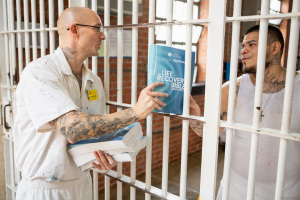Planned Parenthood doctor tells congressional hearing that men can get pregnant

Can biological men get pregnant?
Dr. Bhavik Kumar, an abortionist at Planned Parenthood Gulf Coast, insisted that men can get pregnant during his testimony as an expert witness before a congressional committee hearing about the state of the abortion industry following the U.S. Supreme Court ruling that returned abortion laws back to the states.
Kumar, who also serves as Planned Parenthood's primary and trans care doctor in Houston, Texas, was one of several witnesses who testified at a Sept. 29 House Oversight Committee hearing titled “Examining the Harm to Patients from Abortion Restrictions and the Threat of a National Abortion Ban.”
At one point in the hearing, Rep. Andrew Clyde, R-Ga., asked Kumar “Can biological men become pregnant and give birth?”
“Men can have pregnancies, especially trans men,” Kumar responded.
Clyde then asked the doctor to clarify his remark: “Are you saying that a biological female who identifies as a man and therefore becomes pregnant is ‘a man?’ Is that what you’re saying?”
After Kumar told Clyde that his questions were “missing the point,” he maintained that “Somebody with a uterus may have a capability of becoming pregnant, whether they’re a woman or a man.” An exasperated Clyde reacted to his statement by declaring, “We’re done.”
“This isn’t complicated,” Clyde said. “If a person has a uterus [and] is born female, they are a woman. That is not a man and the vast majority of the world considers that to be a woman because there are biological differences between men and women.”
“Any high school biology class teaches that men and women have different chromosomes. Females are XX [chromosomes] and [males] are XY [chromosomes.] I can’t believe it’s necessary to say this but men cannot get pregnant and cannot give birth, regardless of how they identify themselves.”
Clyde concluded his line of questioning by inquiring, “Why in the world would Democrats have brought in a person whose title is director of trans care for an abortion hearing when only biological women can become pregnant?”
The back-and-forth between the two continued with Clyde taking issue with Kumar’s suggestion that “abortion bans are inherently racist, inherently classist and fundamentally part of the white supremacy agenda.” He noted that Planned Parenthood was founded by Margaret Sanger, whom he described as “someone who associated with white supremacist groups and eugenics. Margaret Sanger’s entire focus was to decimate communities of color through abortion to eliminate their future generations.”
In response to an inquiry from Clyde, Kumar estimated that he had performed “likely thousands” of abortions. This prompted Clyde to offer the doctor a rhetorical question: “Do you believe you have terminated enough unborn babies to justify Margaret Sanger’s beliefs and your continuance of her legacy?”
The exchange between Clyde and Kumar was not the first time that a clash has taken place on Capitol Hill over the idea that only biological women can get pregnant. At a Senate Judiciary Committee hearing earlier this year, Sen. Josh Hawley, R-Mo., objected to UC Berkeley Law professor Kiara Bridges’ use of the term “people with the capacity for pregnancy.”
“Would that be women?” he asked. In response, Bridges suggested that “Many women, cis women have the capacity for pregnancy. There are also trans men who are capable of pregnancy as well as nonbinary people who are capable of pregnancy.”
When Bridges asked Hawley whether or not he thought “men could get pregnant,” he replied in the negative. Bridges contended that such a belief was “denying that trans people exist.”
Hawley’s subsequent assertion that her stated confidence in the ability of trans-identified and nonbinary people to have babies called into question the understanding of abortion as a “women’s rights issue” led Bridges to accuse Hawley of engaging in a “transphobic” line of questioning that “opens up trans people to violence by not recognizing them.”
The contentious conversations about LGBT issues and gender identity on Capitol Hill come at a time when the biological differences between the two sexes has become the subject of multiple political debates.
A Pew Research Center survey conducted in May reveals that 60% of the public agrees that sex is determined at birth, policies allowing trans-identified people to enter opposite-sex spaces such as restrooms and locker rooms and compete on sports teams that correspond with their chosen gender identity as opposed to their biological sex have resulted in severe pushback.
Eighteen states have implemented laws requiring athletes to participate in sports teams that correspond with their biological sex. Advocates for these policies cite the biological differences between men and women as a factor giving trans-identified males an unfair advantage over their biologically female counterparts in athletics.
USA Powerlifting, which has implemented such a policy for its athletes, identifies those advantages as “increased body and muscle mass, bone density, bone structure, and connective tissue.” A separate study from the British Journal of Sports Medicine found that trans-identified males retain a competitive advantage over biological females even after a year of taking feminizing hormones.
Ryan Foley is a reporter for The Christian Post. He can be reached at: ryan.foley@christianpost.com




























